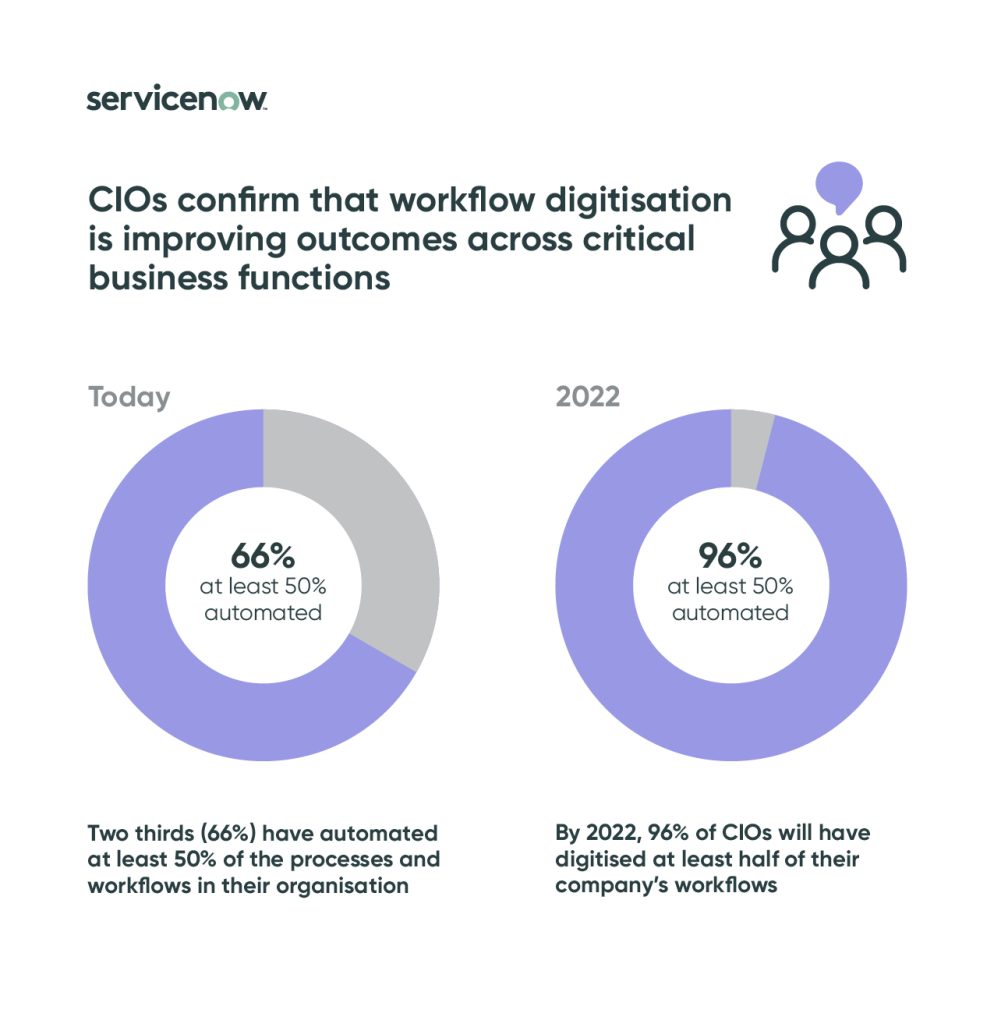CIOs confirm that workflow digitisation is improving outcomes across critical business functions but a study from ServiceNow reveals weaknesses in people and process are holding back Digital Transformation results.
CIOs across EMEA report that digitisation is increasing the effectiveness of key business lines, including customer service, HR, finance, IT and legal, yet a large proportion face challenges in continuing that impact because of weaknesses in their organisations.
That’s according to research from ServiceNow, the leading digital workflow company making work, work better for people.
The global survey of 516 CIOs conducted by Oxford Economics, reveals that around two-thirds (66%) have automated at least 50% of the processes and workflows in their organisation. By 2022, 96% of CIOs will have digitised at least half of their company’s workflows.
However, CIOs are facing challenges in fully realising the potential impact of digitisation because of weaknesses in their organisation, which are undermining digitisation strategy.

To advance digitisation and drive greater success across business functions, EMEA CIOs should consider these five steps as being critical:
- Collaborating with C-suite peers: While 61% of CIOs say they collaborate with their company’s COO to standardise workflows through digitisation and 50% of CIOs say they collaborate with their CEOs, far fewer work with other executives. In fact, 21% say they alone are responsible for workflow digitisation.
- Collaborating with external partners: While 51% of CIOs say their collaboration with external partners is mostly effective, for many, the value they get from those relationships remains a work in progress. Only 17% say they’re highly effective at working with external partners to drive Digital Transformation projects.
- Aligning digitisation goals to business goals. Just 18% of CIOs report that they are highly effective at setting business goals that permeate all areas of the business.
- Embedding IT into an organisation. Few CIOs excel at embedding IT across the business, with just 15% agreeing their organisation is highly effective at building out specialised teams across functions to carry out Digital Transformation.
- Tracking results and adjusting strategy. There’s substantial room for improvement on how digitisation efforts are shared with the business, as only 18% of CIOs think they are highly effective at measuring progress and presenting results to leadership.
“CIOs are playing a pivotal role in driving Digital Transformation strategies and their efforts are improving outcomes across multiple business areas, including HR, finance, IT and legal,” said Chris Pope, VP Innovation, ServiceNow. “Yet many CIOs are struggling to push through lasting benefits.
“To really make an impact with a digitisation strategy, CIOs need to address the people and process aspects within their organisation. By addressing the challenges of cross-organisation collaboration, embedding IT within every business line and ensuring complete alignment of IT and business goals, CIOs will accelerate the realisation of benefits including innovation, better financial performance, and enhanced employee performance.”


